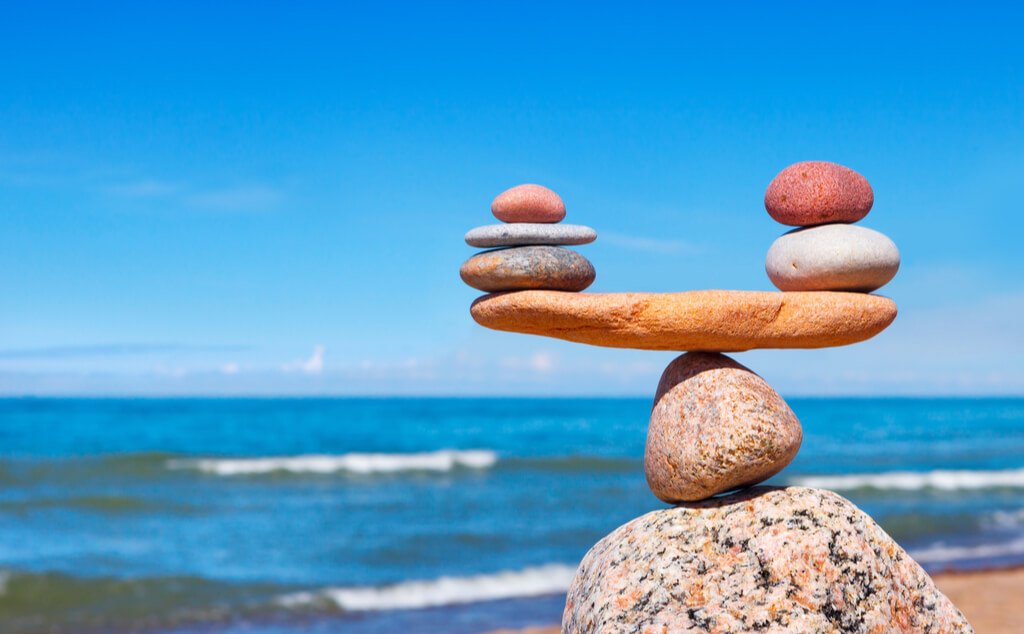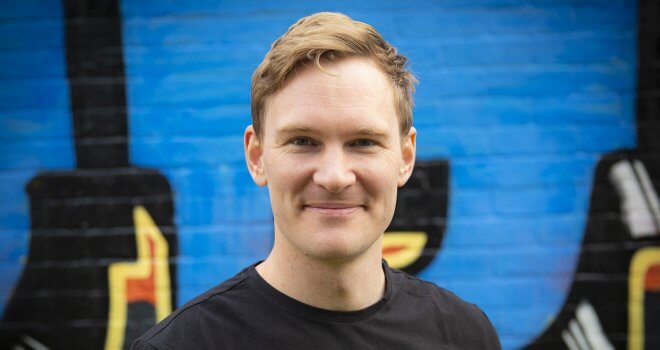5 Practical Steps For A Better Balance In Your Personal And Project Management Life

‘There are decades where nothing happens; and there are weeks where decades happen.’ Vladimir Lenin
When Covid-19 struck we experience turbulence in our lives which was entirely new to most of us. It has been hard to look forward and be sure how everything will play out.
However, amongst the gloomy predictions of Great Depression-like economic slumps and massive job losses, there is hope. And opportunity. The opportunity for us, as a society to change, and an opportunity for each individual to make changes to their lives and create a better balance.
Life before lockdown wasn’t all great! The ‘new normal’ everyone is talking about smacks to me of compromise, limitation and lack.
Nobel Peace Prize winner and social entrepreneur Muhammad Yunus suggests we should not be planning for economic recovery post-Covid, we should redesign the economy and, therefore, business from scratch. I couldn’t agree more.
There are already encouraging signs of this much needed reset. The city of Amsterdam has embraced economist Kate Raworth’s Doughnut Economics – a blueprint for redefining priorities as they seek to rebuild after lockdown.
Raworth’s model, moves us away from our toxic obsession with growth and seeks instead to solve humanity’s 21st century challenge; how to meets the needs of all within the means of the planet.
Business needs to adapt. We need to adapt. And as we adapt, we need to define what we want this ‘new’ to be, and work towards creating a work/life that provides a healthy balance. Our embrace of technology, home working and digital solutions is unlikely to recede completely even once a vaccine is found.
But, how do we maintain connection and develop strong, resilient and empathetic cultures when the people in them no longer travel to an office or share the same physical space? This will be a particular challenge as move into a lower-touch reality.
This will mean adapting to social distancing regulations, potentially a series of temporary lockdowns, travel restrictions and new hygiene guidelines. Customers will be much more cautious when it comes to physical contact, enclosed spaces and large gatherings.
Potentially this could mean that we become less connected, which could pose a further danger to our happiness and mental health. So, maintaining a connection has to be part of our new lives and new business models and ethos.
Human beings are social animals. Forget new normal, we need ‘New Balance’. And that starts with the human being. There is no coincidence that the businesses and governments that have fared best against the Covid storm have been led by kind, empathetic and open leaders.
Think Jacinta Ardern – New Zealand’s Prime Minster. Arden represents a welcome shift away from authoritative power. She does Facebook live sessions and answer questions kindly, honestly and transparently.
So, how do you create a ‘New Balance’ in your work in project management?
- Start by focusing on the human-beings associated with your projects and help them find a balance that works for them and for you.Happy, healthy team members with a sustainable balance between their work lives and their home lives will always be more productive, more loyal and stay in the business longer (i.e. you’ll reduce expensive staff turnover). The business that will succeed are those that recognise the human element of their teams and their customers.
- Develop systems that recognise we need low physical touch, but high human interaction if we are to remain safe and also connected. Human connection is key – we buy from humans, we are inspired, motivated, loyal to, and supportive of humans – not faceless companies. So, make human connection the key focus – within the parameters of safe physical distancing.Perhaps this means more communication, or picking up the phone rather than emailing, arranging group Zoom calls, sharing personal anecdotes, and perhaps most importantly, helping both staff AND clients find a new balance in their lives. Share what you’ve learnt, share the processes that work. Maybe even encourage your clients to join you in them!
Here are five practical steps to help make this ‘new balance’ a reality in your projects and in the lives of your team, your clients– and yourself. To help those around you please share these tips and encourage them to form new habits:
- Take time out, every day to get outside, ideally in nature or a local park. Walk, pay attention to what’s going on around you. Don’t cut yourself off from what’s around with music, audio books or podcasts.Instead, notice the trees, the bird song, the change of the seasons. Take this time, even if it’s just a few minutes, to learn how to just ‘be’. Listen. Think. Spend time in silence.
- Master your mornings: Start your day from a place of positivity. Focus on what you want to achieve that day and take a minute or two to remind yourself what you are already grateful for in your life. Write down six things you are grateful for, and six things you absolutely must achieve today. Then use these as your focus for the day.
- On your commute, or while you eat your breakfast (if you no longer commute) read an inspirational book. For example, ‘Meee in a Work Minute’ has 60 one-minute nuggets of wisdom including life hacks, advice, insights, science, short exercises, and thought experiments to ensure you start the day with positivity and confidence.Another great book is A. C. Grayling’s ‘The Meaning of Things’ which had a profound impact on my life. There are dozens of great books so pick those that resonate with you. Many are also available as audio books.
- Eradicate unnecessary work. Take some time to consider what’s really important in your life. If something doesn’t add value at work or at home, eliminate it from your life. Focus on what matters professionally and personally. Focus on what makes you happy. And make these things the priority.
- Connect with people you care about – at work and at home. At work seek to find ways to maintain some of the flexibility that became essential during Covid-19. Honour both the human being and the employee.Find ways (by using the tips above) to maintain a connection and to find a balance that works for both parts of your life; the business/work and the home. At home, talk to each other, eat together as a family and maintain the strengthened bonds facilitated by the pandemic.
Businesses that have adopted kind, empathetic and human-first approaches are the ones that are moving forward in difficult times. The businesses that are going to thrive in the new economy are going to be the ones that are focused on building community and fostering belonging for customers and employee.
As Intel’s Andy Gove famously said, “bad companies are destroyed by crisis, good companies survive them, and great companies are improved”.
Those that will improve will do so by human collaboration not competition. Within projects you’ll be involved with you have the opportunity to operate differently. Focus on and appreciating what is most important – the human beings.
Sid Madge is founder of Meee (My Education Employment Enterprise) which draws on the best creativity and thinking from the worlds of branding, psychology, neuroscience, education and sociology, to help people achieve extraordinary lives.
To date, Meee has transformed the lives of over 20,000 people, from leaders of PLC’s and SME’s to parents, teachers, students, carers, the unemployed and prison inmates.
Sid Madge is also author of the ‘Meee in Minute’ series of books which each offer 60 ways to change your life, work-, or family-life in 60 seconds.
Web: www.meee.global




